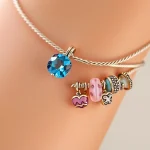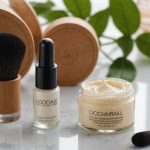Lace clothing deserves special care, especially when it comes to washing and maintaining its beauty. Many fabric softeners can overpower delicate fabrics, leaving them stiff or damaged. This guide highlights the top fabric softeners designed specifically for lace garments. We focus on options that ensure your delicate pieces feel soft and luxurious without compromising their intricate designs. Discover how to pamper your lace clothes and extend their lifespan, while enjoying a gentle washing experience tailored just for them.
Best Fabric Softeners for Delicate Lace Clothing
When it comes to caring for your delicate lace clothing, choosing the right fabric softener is crucial. Top Fabric Softeners specifically designed for delicate fabrics can make a significant difference in maintaining the texture and appearance of your lace garments. These softeners offer gentle conditioning, preventing the fabric from becoming stiff or damaged over time.
In the same genre : Top Lightweight Jackets to Keep You Stylish This UK Spring
User reviews and ratings provide valuable insights into the effectiveness of various products. For instance, many consumers praise softeners like “Silk & Lace Tender” for its ability to keep lace supple without causing any harm. Similarly, “Gentle Touch” is often highlighted for its hypoallergenic properties, making it a favourite among those with sensitive skin.
When comparing the best fabric softeners, it’s important to consider how well they perform on delicate fabrics. Products like “Lace Love” stand out for their ability to preserve the intricate patterns of lace while ensuring the fabric remains soft and fragrant. On the other hand, some users report that certain generic softeners can lead to a loss of elasticity and cause the lace to appear dull.
This might interest you : Explore the beauty of pandora charms familia today
In summary, selecting a fabric softener specifically formulated for lace ensures your garments stay beautiful and comfortable to wear.
Key Ingredients to Look for in Fabric Softeners
Selecting the right fabric softener ingredients is essential for maintaining the integrity of your delicate lace garments. Understanding what to look for can help prevent damage and ensure your clothes remain in pristine condition.
Gentle Ingredients
When choosing a fabric softener, prioritise gentle ingredients that are safe for lace. Hypoallergenic components are particularly beneficial, as they minimise the risk of irritation for sensitive skin. Ingredients like aloe vera and chamomile are known for their soothing properties and are ideal for delicate fabrics.
Safe for Lace
Avoiding common harmful chemicals is crucial when selecting a fabric softener. Substances such as phthalates and formaldehyde can weaken the fabric fibres, leading to damage over time. Instead, opt for softeners that are free from these harsh chemicals to ensure your lace remains soft and intact.
Benefits of Plant-Based or Natural Softeners
Plant-based or natural softeners offer numerous benefits. They are often biodegradable and environmentally friendly, reducing the ecological footprint of your laundry routine. Additionally, these softeners typically contain fewer allergens and irritants, making them a safer choice for both your garments and your skin. Look for products labelled as organic or eco-friendly to ensure you are choosing the best option for your delicate lace clothing.
Tips for Washing Delicate Lace Fabrics
Washing delicate lace fabrics requires careful attention to preserve their intricate beauty and softness. Here are some care tips to ensure your lace garments remain in excellent condition.
Recommended Washing Techniques
Washing delicate fabrics like lace is best done by hand. This method minimises the risk of damage compared to machine washing. Use a gentle detergent specifically designed for delicate fabrics. If you must use a washing machine, select a delicate cycle and place the lace items in a mesh bag to provide an extra layer of protection.
Ideal Water Temperature and Cycle Settings
When washing lace, use cold or lukewarm water to prevent shrinking and maintain the fabric’s elasticity. Hot water can cause lace to lose its shape and become damaged. If using a washing machine, choose the gentle cycle to ensure minimal agitation.
Use of Mesh Bags and Other Protective Measures
Mesh bags are essential for washing delicate fabrics in a machine. They prevent lace from snagging or tangling with other items. Additionally, avoid overloading the machine to reduce friction. After washing, lay lace flat on a towel to dry, as hanging can stretch the fabric. These steps will help maintain the elegance and longevity of your lace garments.
Where to Buy Fabric Softeners in the UK
Finding the best fabric softeners in the UK can be simple with the right resources. For those who prefer online shopping, major retailers like Amazon and eBay offer a wide selection of products, including speciality softeners for delicate lace fabrics. These platforms often provide customer reviews and ratings, helping you make informed decisions.
For a more hands-on approach, several UK retailers have a good selection of fabric softeners. Stores like Tesco, Sainsbury’s, and Boots stock various options, from budget-friendly to premium brands. Visiting these stores allows you to compare products in person and take advantage of in-store promotions.
When it comes to price comparisons, online platforms usually provide competitive pricing due to frequent discounts and deals. However, local stores might offer exclusive promotions or loyalty points, making them worth checking out. Availability can vary, with some speciality softeners more commonly found online.
To ensure you get the best deal, consider checking both online and in-store options. This approach helps you balance convenience and cost, allowing you to find the perfect fabric softener for your delicate lace garments.
User Experiences and Reviews
When it comes to fabric softener reviews, user feedback plays a crucial role in understanding the effectiveness of these products on delicate lace clothing. Consumers often highlight specific features that stand out in their experiences.
Summary of Consumer Feedback
Many users appreciate products that maintain the softness and integrity of lace. For instance, “Silk & Lace Tender” frequently receives praise for leaving garments supple and fragrant. Consumer experiences often mention the ease of use and the noticeable difference in fabric texture after application.
Most Praised Features
The most lauded features include hypoallergenic properties and the ability to preserve intricate lace patterns. Users frequently commend softeners like “Gentle Touch” for being gentle on sensitive skin while enhancing the garment’s appearance. User feedback also highlights the pleasant, lingering scent these softeners impart on fabrics.
Common Complaints and Issues
Despite positive reviews, some consumer experiences reveal dissatisfaction. Common complaints include the occasional residue left on lace, which can dull its appearance. Additionally, some users report that not all products prevent lace from losing elasticity over time. These issues underscore the importance of choosing a softener specifically designed for delicate fabrics.
Environmental Impact of Fabric Softeners
Understanding the environmental concerns associated with traditional fabric softeners is essential for making informed decisions. Many conventional softeners contain chemicals that can harm aquatic life and contribute to pollution. These products often include non-biodegradable ingredients, leading to long-term environmental damage.
In contrast, eco-friendly fabric softeners offer a sustainable alternative. These products are typically made from natural, biodegradable ingredients that reduce the ecological footprint of your laundry routine. They avoid harmful chemicals, making them a safer choice for both the environment and your delicate lace garments.
Sustainable choices in fabric softeners are becoming increasingly popular among consumers who are environmentally conscious. Brands like “Eco Soft” and “Green Touch” are praised for their commitment to sustainability, offering products that are both effective and kind to the planet. These brands use plant-based ingredients and eco-friendly packaging, further enhancing their environmental benefits.
For those looking to make more sustainable choices, consider trying eco-friendly softeners. Not only do they help protect the environment, but they also provide gentle care for your lace clothing, ensuring it remains soft and beautiful. Opting for these alternatives can significantly reduce your environmental impact.
Alternatives to Fabric Softeners
Exploring fabric softener alternatives can provide effective solutions for those seeking natural softening methods. These options often rely on common household items, offering a DIY approach to fabric care.
Natural Softening Methods
Vinegar and baking soda are popular natural softening agents. Vinegar helps remove residues and softens fabrics by balancing pH levels. Baking soda, on the other hand, acts as a gentle cleanser and deodoriser, keeping clothes fresh and soft.
Pros and Cons of Alternative Methods
While natural methods are eco-friendly and cost-effective, they may not impart a lasting fragrance like commercial softeners. Vinegar can sometimes leave a faint smell, though it generally dissipates after drying. Baking soda is gentle but may not be as effective on heavily soiled fabrics.
How to Create DIY Fabric Softeners at Home
Creating a DIY fabric softener is simple. Combine one cup of vinegar with essential oils for fragrance. Alternatively, mix baking soda with water and a few drops of essential oil. These DIY solutions offer a personalised touch, allowing you to tailor the scent and softness to your preference.











